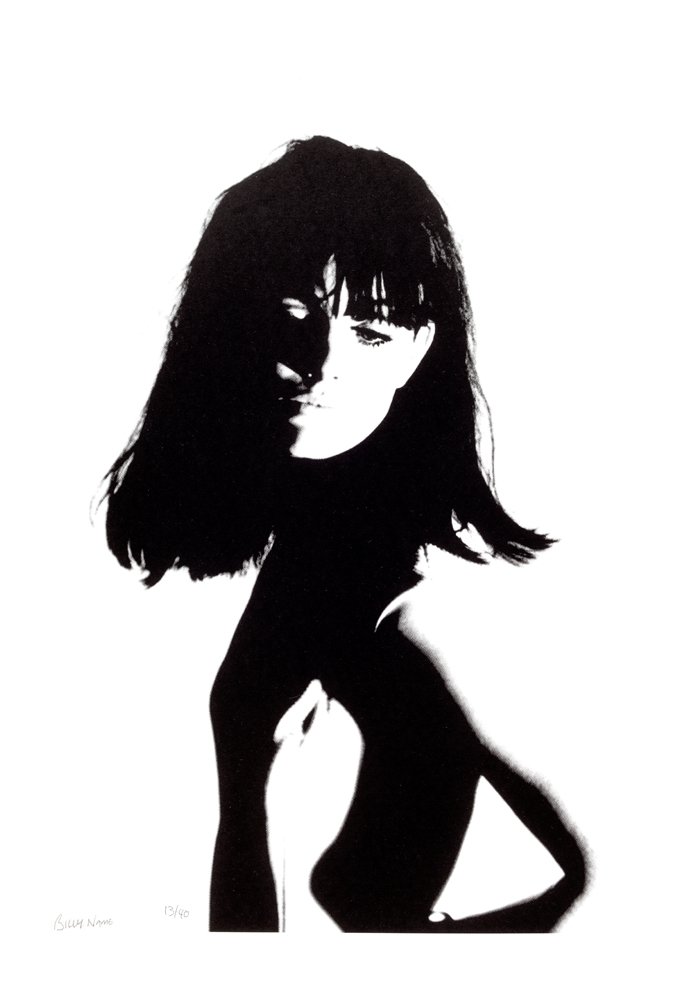September 2025
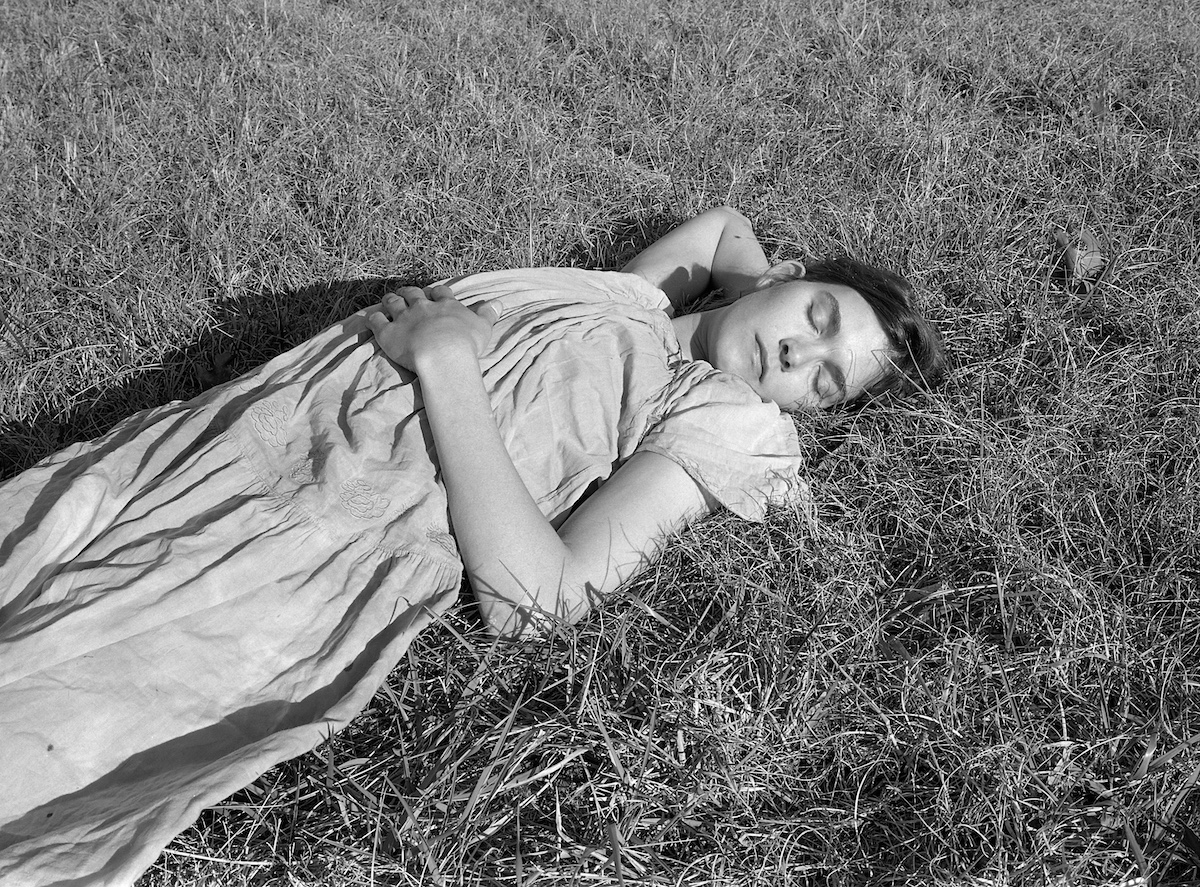
MARK STEINMETZ: TAKEN FROM LIGHT
‘The sublime poetry of the everyday. Mark Steinmetz’s stunning black and white shots capture kids across America’ The Guardian
‘His images are full of spaces, both physical and psychological. Gaps left to be filled in by the viewer, imagined rather than shown. His photographs are detached, yet intimate. And they get to the heart of how it feels to spend time alone, in the presence of others.’ Financial Times
September 2024
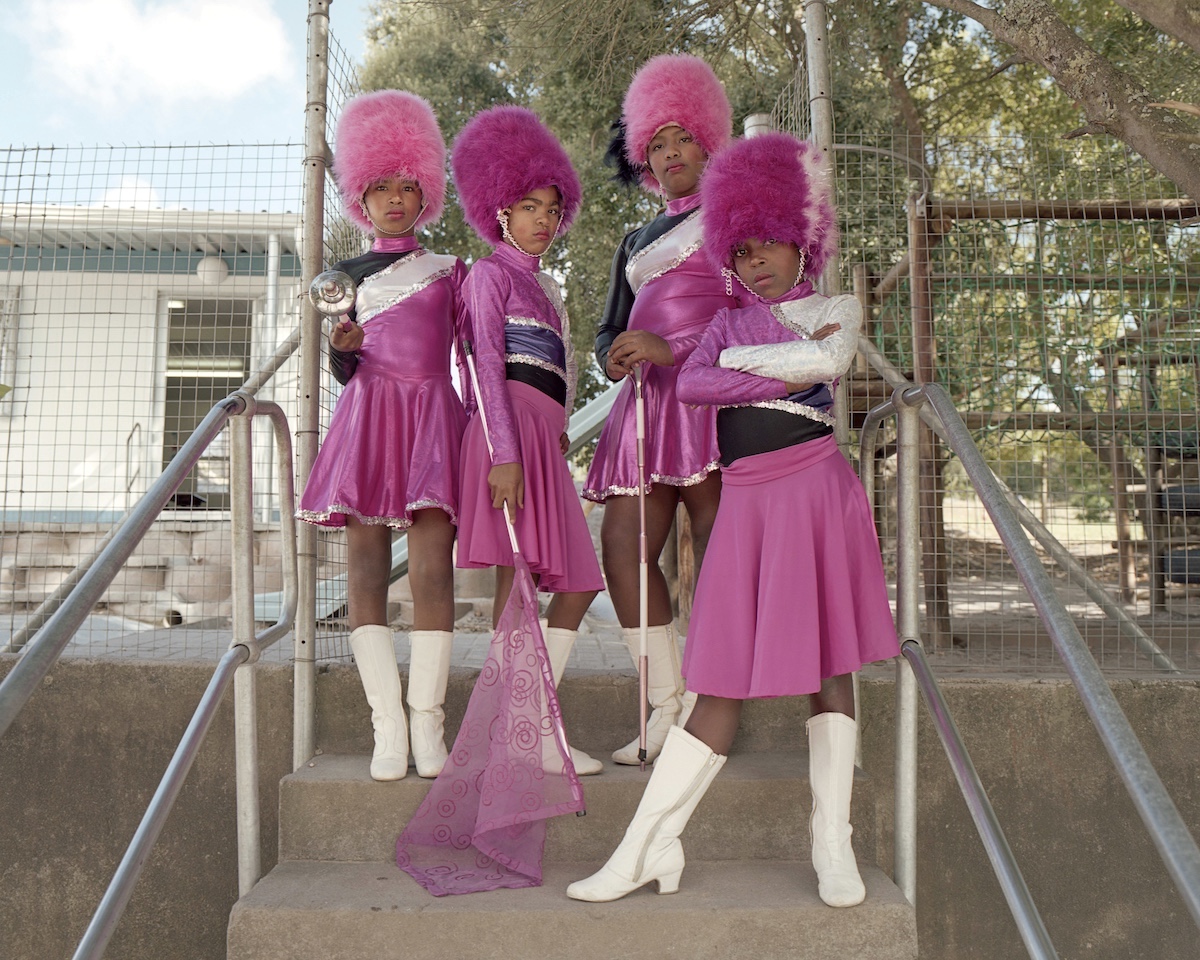
ALICE MANN: DRUMMIES
‘The girls stand alert and attentive, their postures absolutely correct. Once they don their uniforms – resplendent dresses in ultraviolet and fuchsia with a matching busby hat, white leather gloves and boots – they transform into superheroes.’ Dazed read the interview here
‘Drummies retrofits the male-dominated genre of flashy sports photography to capture girls who are mostly from low-income families in the townships.’ The New Yorker
‘Alice Mann’s Already Seminal Drummies Series captures the exuberance of Cape Town’s young female majorettes’ AnOther Magazine
‘Each sitter is precisely framed within a carefully considered composition, and the girls confidently meet the camera’s gaze. Their pristine and vibrant outfits jar with the rundown surroundings, lending a surreal and enigmatic atmosphere to the portraits.’ The Guardian
‘Being a drummie can be a channel for upward social mobility for South African girls, a space to display discipline and achievement and stay away from criminal activity in the area. Their spangled uniforms, often expensive, are a way of defiantly displaying a sense of worth which is not necessarily conferred on them by the wider society.’ The Independent
‘We practise three times a week during the week for two and a half hours, and for seven hours on a Saturday. They will be at every practice. I never have absentees, unless there is a funeral or they are sick. Being in the team teaches them life skills, they learn to structure their lives, they can prioritise. At the end of the day, they are able to excel. This comes from having a confidence in themselves, the most important thing in our area. It’s not easy to excel here.’ Morisha Prince, drum majorette coach at Dr Van Der Ross primary school, Cape Town
‘These young women put their uniforms on, strut and tell the boys to get out of their way, which I thought was beautiful to see. They’re totally emboldened in that moment, and I wanted to tap into that.’ Alice Mann speaking with AnOther Magazine
March 2024
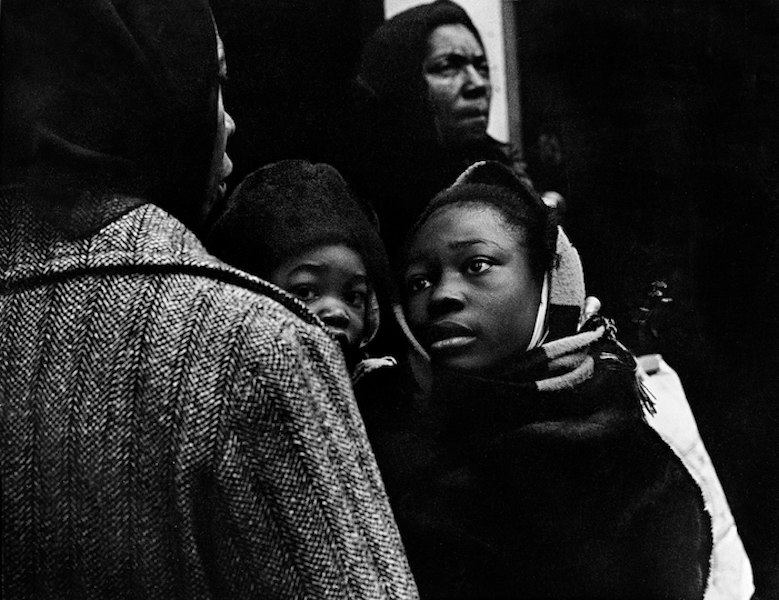
STREET LIFE – GROUP EXHIBITION WITH FRAMELINES
‘Explore the world’s streets through the eyes of photographers, including Lisa Barlow, whose keen eye captures the poetry and drama in everyday encounters. Award-winning Italian photographer Mario Carnicelli’s work, influenced by New Wave cinema, explores the optimism and introspection of the American experience, while Baldwin Lee’s shots document Black lives in the American South in the 1980s.’ Conde Nast Traveller
‘A captivating journey through the heart of urban landscapes’ The Eye of Photography
September 2023
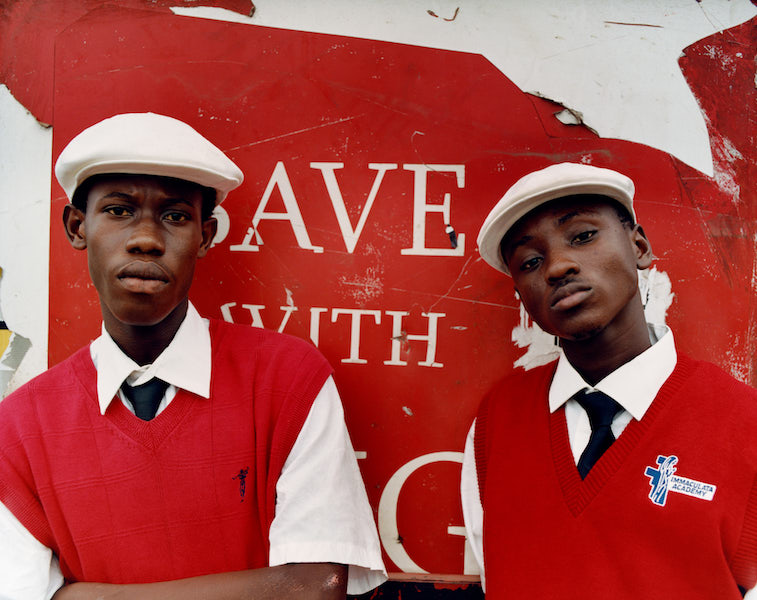
MEETING AT THE VOLTA: SANLÉ SORY / KYLE WEEKS
‘Two generations of photographers, displayed side-by-side, powerfully capture the lively energy of West Africa’ Forbes
‘West Africa’s style icons … and the tiny studio that shot them: Sanlé Sory has become known around the globe for the stunning portraits of fashionable locals he took from his studio in Upper Volta’ The Guardian
‘Sanlé Sory and Kyle Weeks, two brilliant African photographers born 50 years apart, are brought together in a celebratory new show at London’s David Hill Gallery’ AnOther Magazine
‘Ghana’s most stylish guys. Kyle Weeks has spent years on the streets of Accra, photographing the young creatives who represent the west African spirit of enthusiasm and hope’ The Guardian
‘These photos capture the sweet harmony of Pan-African youth’ Dazed
‘These are not merely portraits; they are historic documents of time and place whose resonance and influence grows with each passing day.’ Huck
‘Two generations of remarkable African photographers’ B+W Photography
March 2023
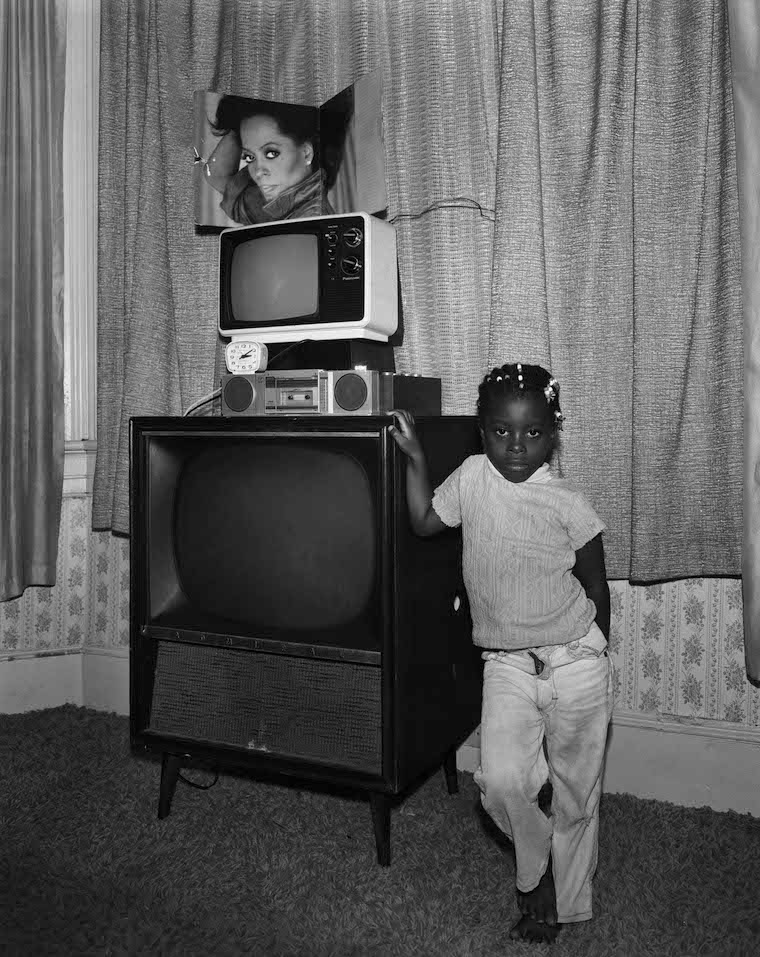
BALDWIN LEE – A SOUTHERN PORTRAIT, 1983-89
‘Baldwin Lee is one of those artists who teach us to see’ New York Times
‘In the 1980s an unknown photographer from New York travelled through the US capturing life in Black communities. Now these mostly unseen pictures have made him a star.’ The Guardian
‘A stunningly wrought group of photographs that are artistic to the highest degree.’ The Washington Post
‘Extraordinary pictures from the American South’ The New Yorker
‘An account of American life that engages us to look and feel. Unforgettable’ Esquire
‘This show marks the first time that Lee’s work has been exhibited outside the US, with some images being printed for the first time for the London show. Viewed all these years later, they appear luminous and humane and far beyond the reach of sentimentality.’ Financial Times
‘This one modest room of photographs is – and no apologies for the cliché – staggering. You won’t see a better show of photography this year. Maybe ever.’ Time Out
‘The black-and-white images Lee made during that time, shot with a labor-intensive large-format camera, stand out not only because of their technical virtuosity. Their power, I’d argue, derives from Lee’s moral clarity.’ The Atlantic
‘Lee wanted to use his status as an outsider to better understand how the dichotomies of power and subjugation, rich and poor, hope and hopelessness shaped the people in the region’ Financial Times
‘While at Yale, Lee studied under Walker Evans. And much like Evans’s photographs, Lee’s are precise, with an eye for contrast and symmetry, and characterised by a profound sense of balance, clarity, and control. As with Evans’s seminal American Photographs, they feel like vital records, relics of not just particular moments in time but history itself, history mapped out on the faces and bodies of people.’ AnOther Magazine
‘His images depict the simple pleasures of childhood, the lives of working adults, and the bonds within families and communities, all reflecting his unique commitment to portraying life in America’ Aesthetica Magazine
‘A mesmerising portrait of the American South in the 1980s’ iD/Vice
‘Numerous road trips introduced Baldwin Lee to the American South’s Black communities that would go on to compel him. A Chinese-American New Yorker, he is an unexpected chronicler of impoverished life in the 1980s South yet, arriving four decades after the trips, his photobook shines an honest light on the hardships endured by many, which still prevail today’ The British Journal of Photography
‘Graceful portraits and sensitive documentary photographs, culled from a largely untouched archive of almost 10,000 negatives’ B+W Photography
‘An exceptional series of portraits’ The Eye of Photography
‘A series of breath-taking portraits’ Huck
December 2022
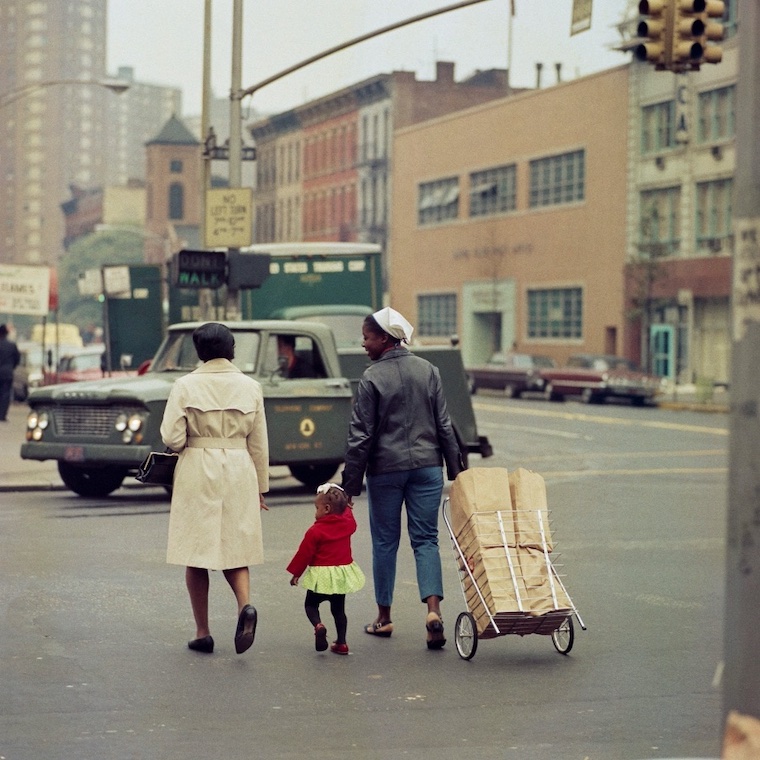
STREETS OF NEW YORK
‘The big picture: hope in 60s Harlem’ Mario Carnicelli in The Observer – read here
‘The ultimate metropolis caught by some of the finest eyes in photographic history, Streets of New York is a fascinating insight into another time.’ We-Heart.com
May 2022
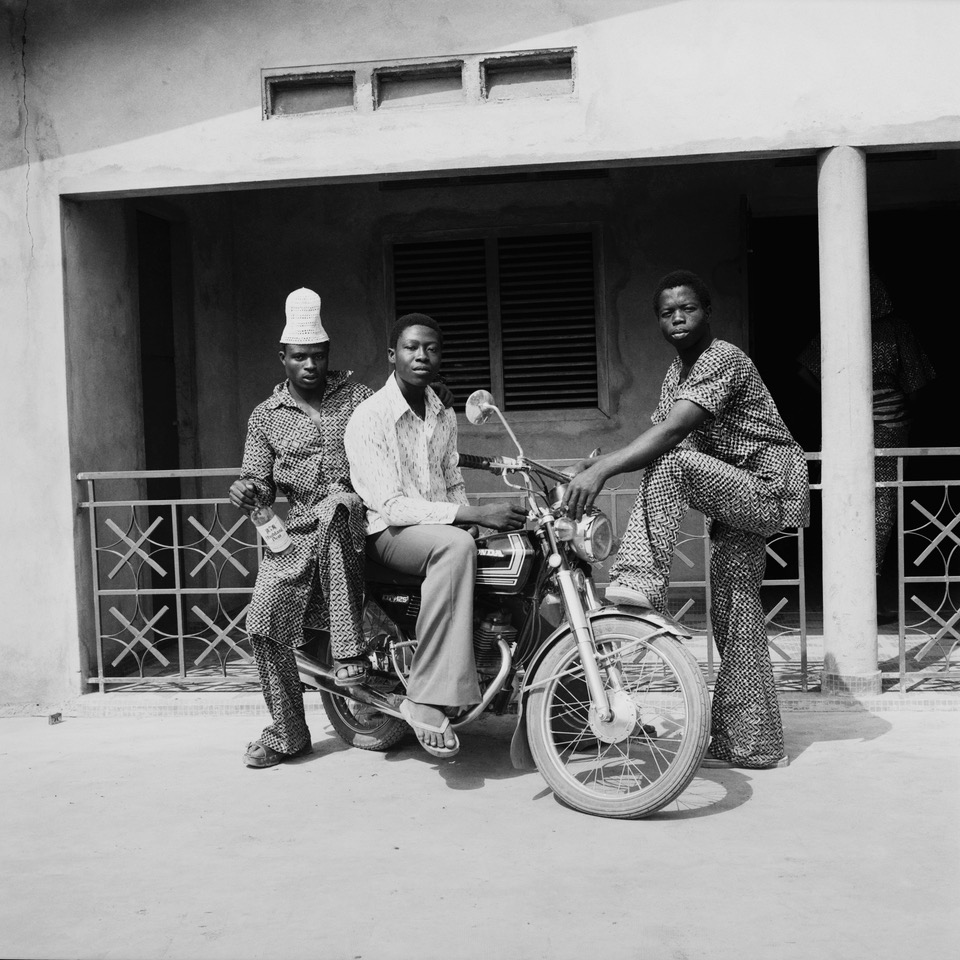
RACHIDI BISSIRIOU – GLOIRE IMMORTELLE
‘West Africa’s photographic master. Bissiriou’s images are remarkable for their simplicity and a freshness that feels utterly contemporary.’ The Guardian
‘One of West Africa’s most important image-makers.’ AnOther Magazine
‘These beautiful black and white portraits, which exhibit a remarkably contemporary style, offer an insight into the emerging cultural trends of the time. The subjects themselves appear notably relaxed in front of the lens – a testament to Bissiriou’s connection with them. Intimately framed, they are given a rare chance for documented self-expression, presenting to Bissiriou subtle smiles and pensive expressions.’ Creative Review
‘An extraordinary series of portraits’ The Guardian
‘Gloire Immortelle – pictures by outstanding West African photographer Rachidi Bissiriou’ Black + White Photography
‘Bissiriou’s innate photographic talent shines through in the delicate framing and lighting of these black and white pictures. This remarkable exhibition offers previously unseen insight into one of West Africa’s greatest photographers.’ The Eye of Photography
September 2021
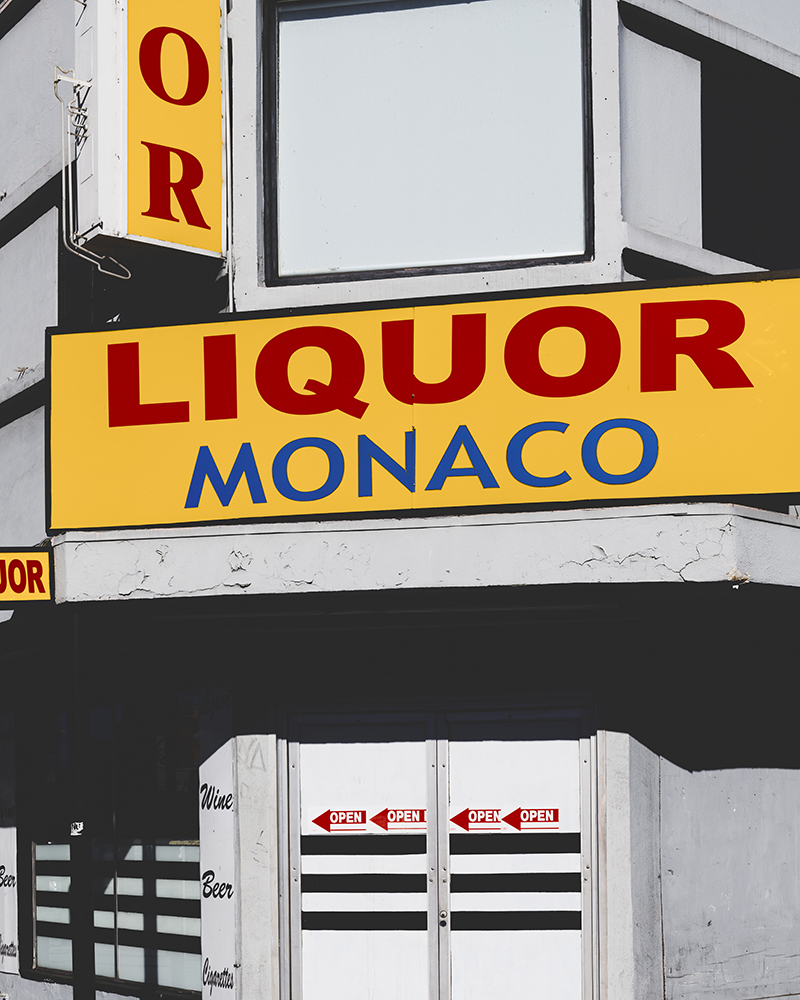
BEN HASSETT – BEER SODA LOTTO
‘Seductive and timeless, Hassett’s images look almost like oil paintings with their rich colours, clever compositions and heavy textures.’ Creative Boom
‘The series has an evocative, timeless melancholy. Hassett’s vision of LA is poetic – against the flat bleakness and empty streets. This is a portrait of a city but also a portrait that illustrates our failure to observe.’ The Eye of Photography
‘Evocative and melancholy in its subject, the series celebrates the beauty of Los Angeles and how its breathtaking desert light seems to fill every corner, bathing every sidewalk, building and facade in brightness that Britain rarely experiences. This isn’t just a body of work for photography lovers, one that pays homage to the likes of Garry Winogrand and Ed Ruscha perhaps, but also a visual treat for graphic designers.’ Creative Boom
September 2020
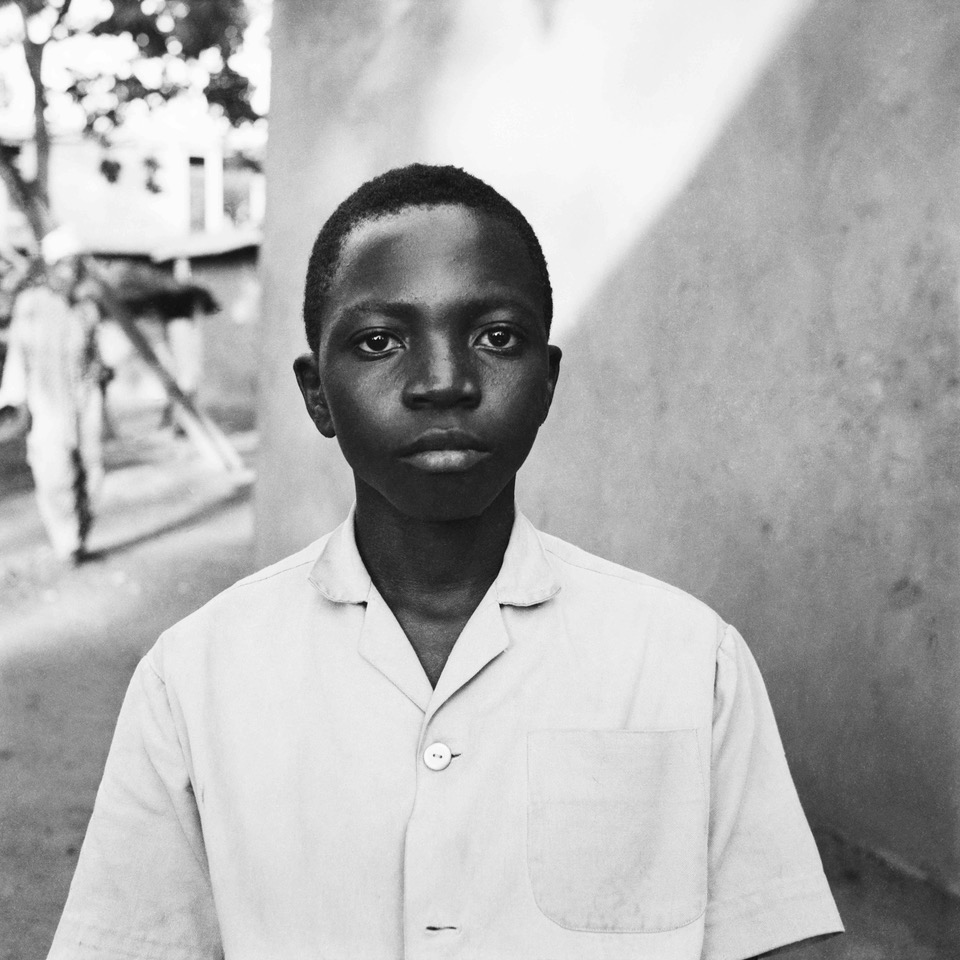
TÊTE-À-TÊTES – WEST AFRICAN PORTRAITURE, FROM INDEPENDENCE INTO THE 21st CENTURY
‘A show bringing together the work of some of the region’s most important photographers, including Sanlé Sory, Rachidi Bissiriou, Malick Sidibé and Leonce Raphael Agbodjélou’ The Guardian
‘In Sory’s images, we see a snapshot of an era – a moment marked by its music, movement and anticipatory hope for a brighter future.’ AnOther Magazine
‘The big hopes and bigger dreams of West African youth in 1960s Burkina Faso radiate from the portraits of Sanlé Sory’ Time Out
‘Sanlé Sory and Malick Sidibé perfectly captured the exuberance of youth in post-colonial West Africa – their images simply fizz with life’ Black + White Photography
February 2020
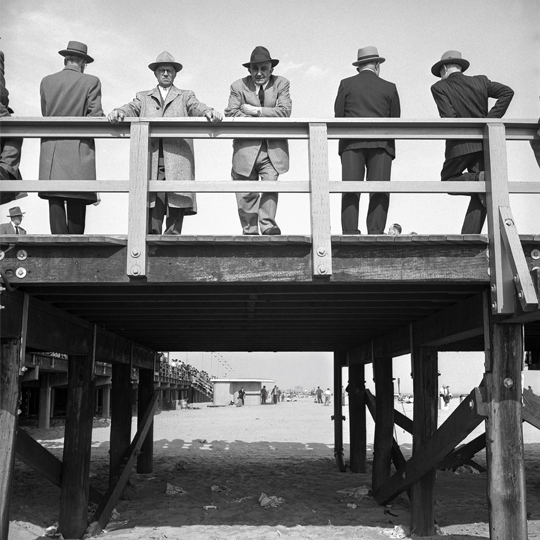
HAROLD FEINSTEIN – BOARDWALKS, BEACHES AND BOULEVARDS
‘One of the most accomplished recorders of the American experience’ New York Times
‘Feinstein established himself as an eagle-eyed observer of city life, matching exquisite black-and-white compositions with a rare command of printing.’ The Guardian
‘The American photographer Harold Feinstein was in on the fun. He got up-close and personal with his subjects. The images that resulted, people in Times Square, Harlem, and on the crowded beaches of Feinstein’s native Coney Island, are marked by a singular level of intimacy and compassion. Feinstein was only 19 when his work was acquired for the Museum of Modern Art, and he had major shows at both MoMA and the Whitney, but despite early success his extensive collection of street photography has flown largely under the radar.’ Air Mail
‘Harold Feinstein took some of the great photographs of New York at play’ The Independent
‘Harold Feinstein could have been a quintessential street photographer. His subject was 1940s New York; his medium, a Rolleiflex camera borrowed from a neighbour. The native New Yorker honed his skills on the beaches and boardwalks of Coney Island, wandering among the sun-drenched crowds in search of subjects. But, his work evades that categorisation. British Journal of Photography
‘Harold Feinstein was not a photographer who would stand back and observe, unnoticed. It is this physical closeness, an extension of Feinstein’s profound connection to his subjects, that sets his work apart from other street photographers from the same period. Whether standing over a group of teenagers lying on a Coney Island beach, photographing a couple on the boulevard, or capturing the immutable gaze of a young child, intimacy and compassion sit at the core of each image.’ The Eye of Photography
September 2019
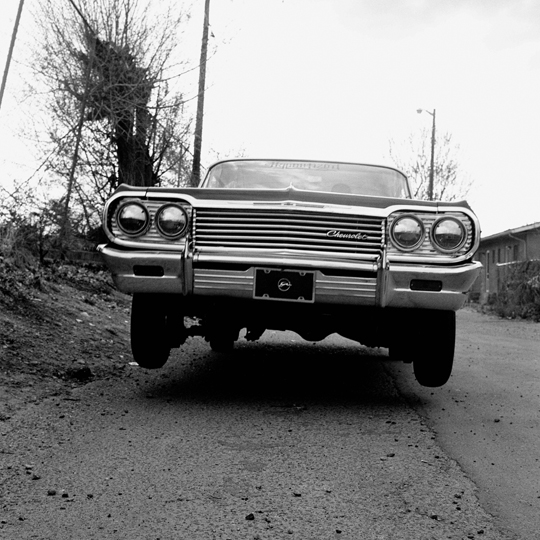
HUNTER BARNES – OUTSIDE OF LIFE: LOWRIDERS, COOLERS, BIKERS & BLOODS
‘Hunter Barnes has spent decades photographing groups that determinedly reject mainstream life – the gun-toters, bikers and the serpent-wielding pastors. He spends years earning their trust before taking their pictures.’ The Guardian
‘Intimate portraits of the men and women who welcomed Barnes into their homes, prison yards, biker gangs, backwoods, low rider whips, and even sweat lodges, as was the case when the humble photographer embedded himself with the “Dreamers” of the Nez Perce tribe for four months before snapping a single shot.’ Paper Magazine
‘Stunning black and white photos of pure Americana – Hunter Barnes has devoted his life to documenting American subcultures.’ Esquire USA
June 2019
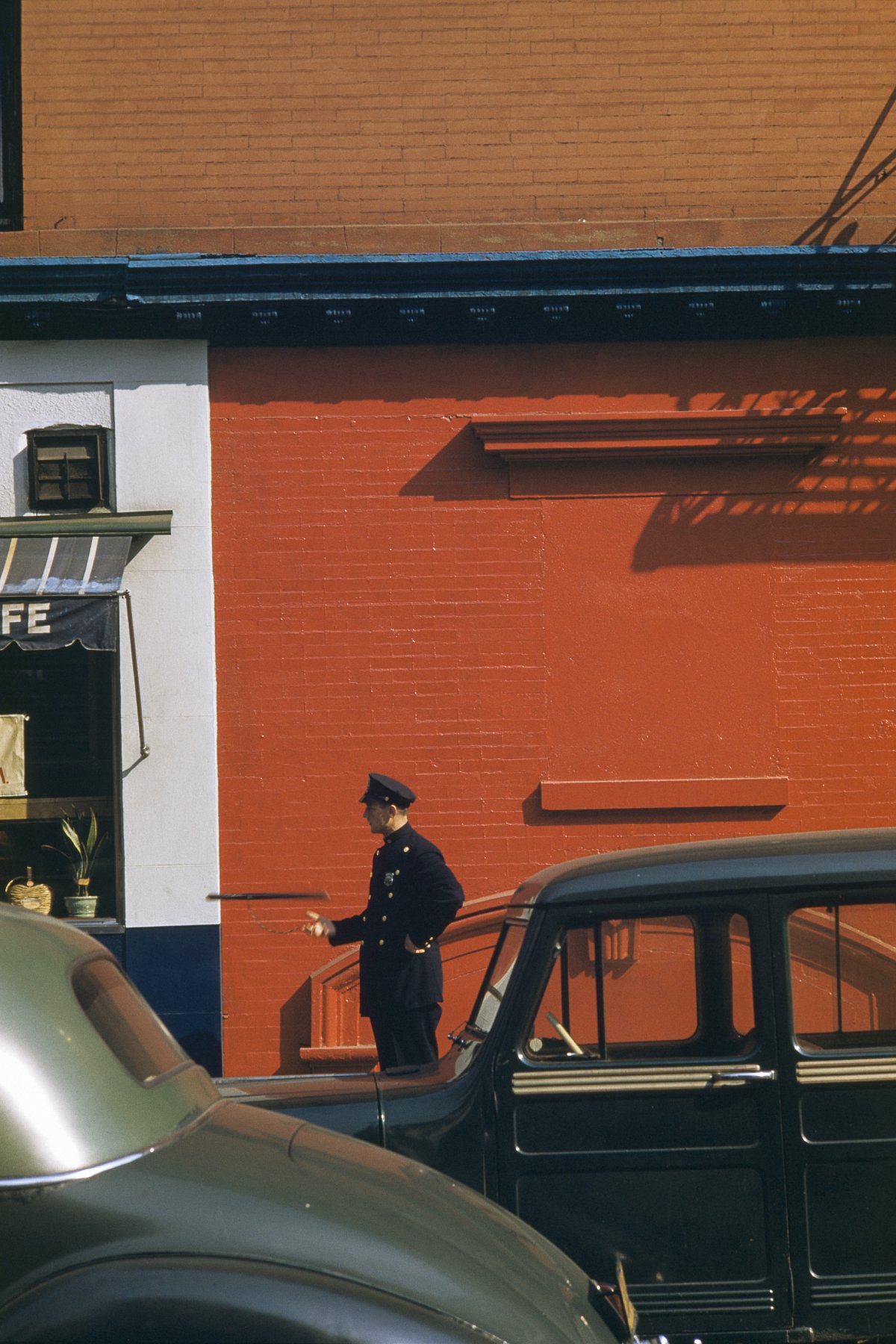
WERNER BISCHOF – USA
‘The acclaimed Magnum photographer Werner Bischof’s early use of colour shaped the development of photojournalism.’ The Guardian
‘USA is a series of work that brings early 1950s America vividly to life – they are stolen moments through shop windows and cars that blur past, evoking anonymity, and a contemplative look at everyday life in America during a period of immense change.’ British Journal of Photography
‘Legendary work with Fifties American street scenes, from moving figures to sidewalks and cars, many exhibiting mesmerising geometry.’ GQ
‘USA is a compelling chronicle of the time; a landmark study of the beauty of ordinary people, the streets they walked and the shops they frequented, as well as an honest look at the colorful and nuanced landscape that fashioned post-war America.’ L’Œil de la Photographie
April 2019
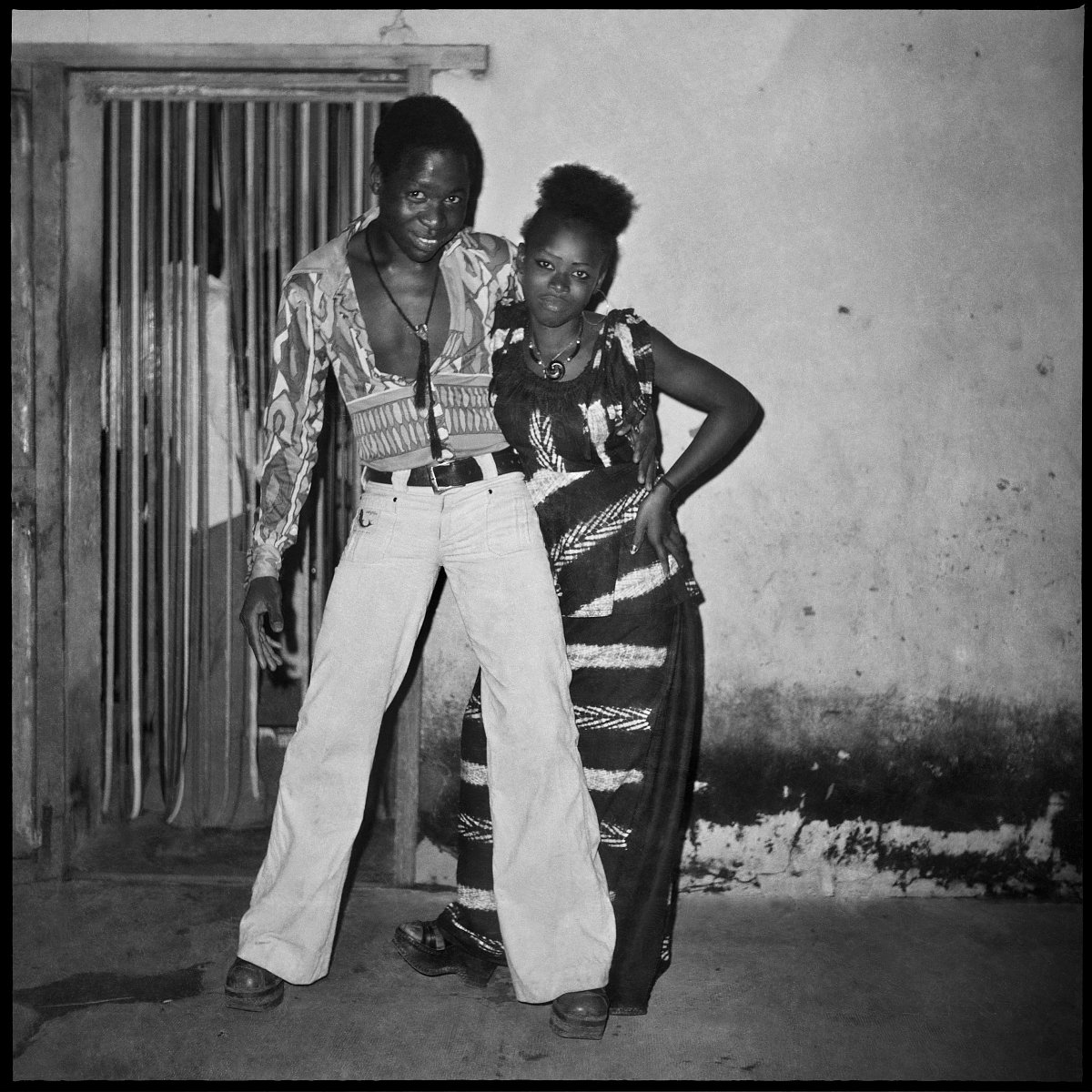
SANLÉ SORY – PEUPLE DE LA NUIT
‘These people are metropolitan, worldly, and cool, and they vibrate with excitement for a new future.’ The New Yorker
‘Vibrant youth culture and a flourishing music scene leap out of the west African photographer’s Peuple de la Nuit’ The Guardian
‘Peuple de la Nuit is an evocative tribute to nightlife in the city of Bobo Dioulasso’ Vogue
‘The unique and carefree Bobo of Sory’s time has been and gone. But it lives on in his photography.’ CNN
‘An energetic and beautiful collection of photographs’ GQ
‘Shot by Sanlé Sory between 1960 and 1985, the vibrancy of the photographs shines through the moody black and white’ Creative Review
‘If there’s music, you need to have memories. Photography tells the story.’ Sanlé Sory
‘If I hadn’t seen those photographs, I wouldn’t be designing. They’re some of the first things I looked at that inspired me to become a designer.’ Grace Wales Bonner on the work of Sanlé Sory, ID/Vice
October 2018
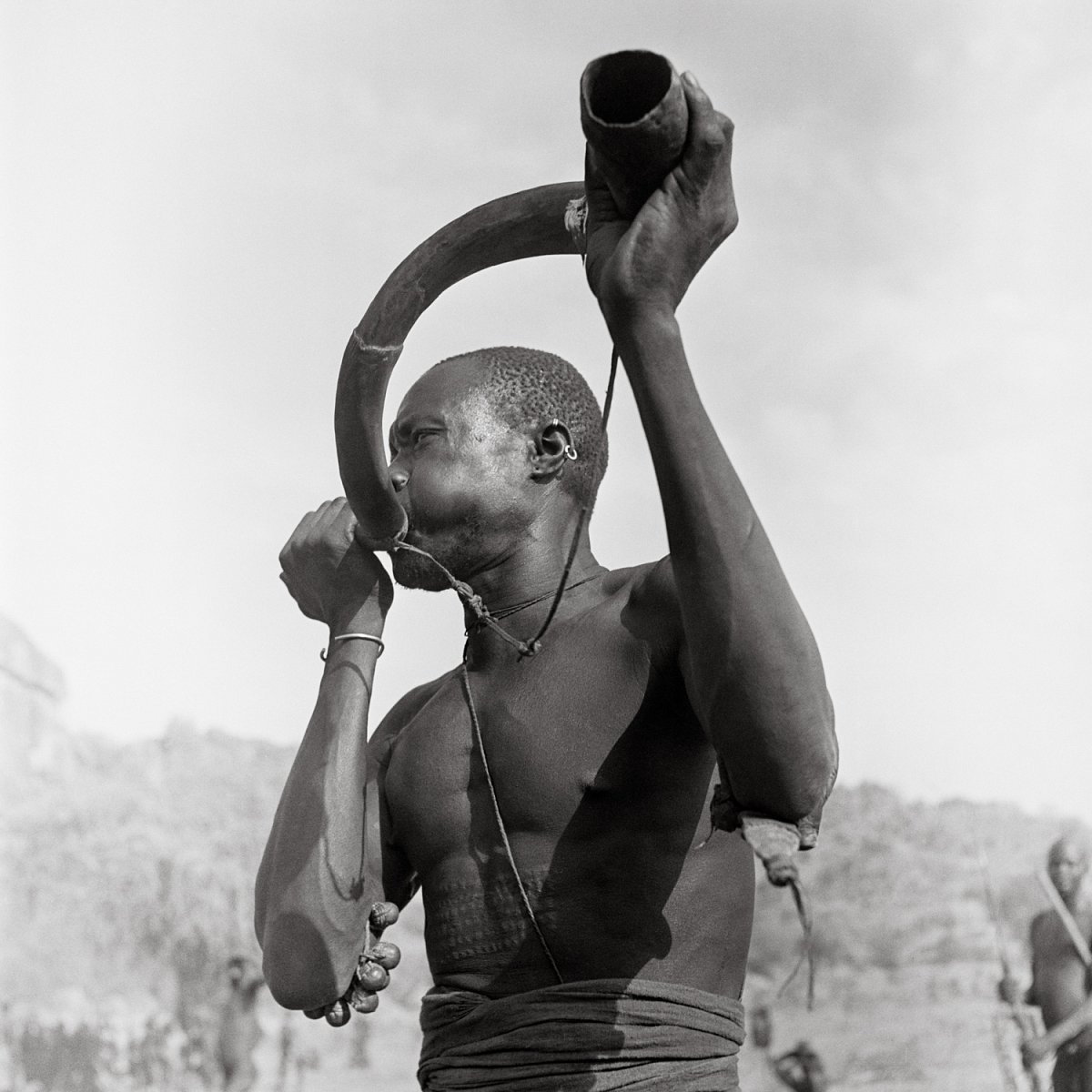
GEORGE RODGER – SOUTHERN SUDAN
‘Some of the most iconic photographs in recent history’ Black + White Photography
‘George Rodger belongs to the great tradition of explorers and adventurers. His work is a moving testimony through time and space.’ Henri Cartier-Bresson
September 2018
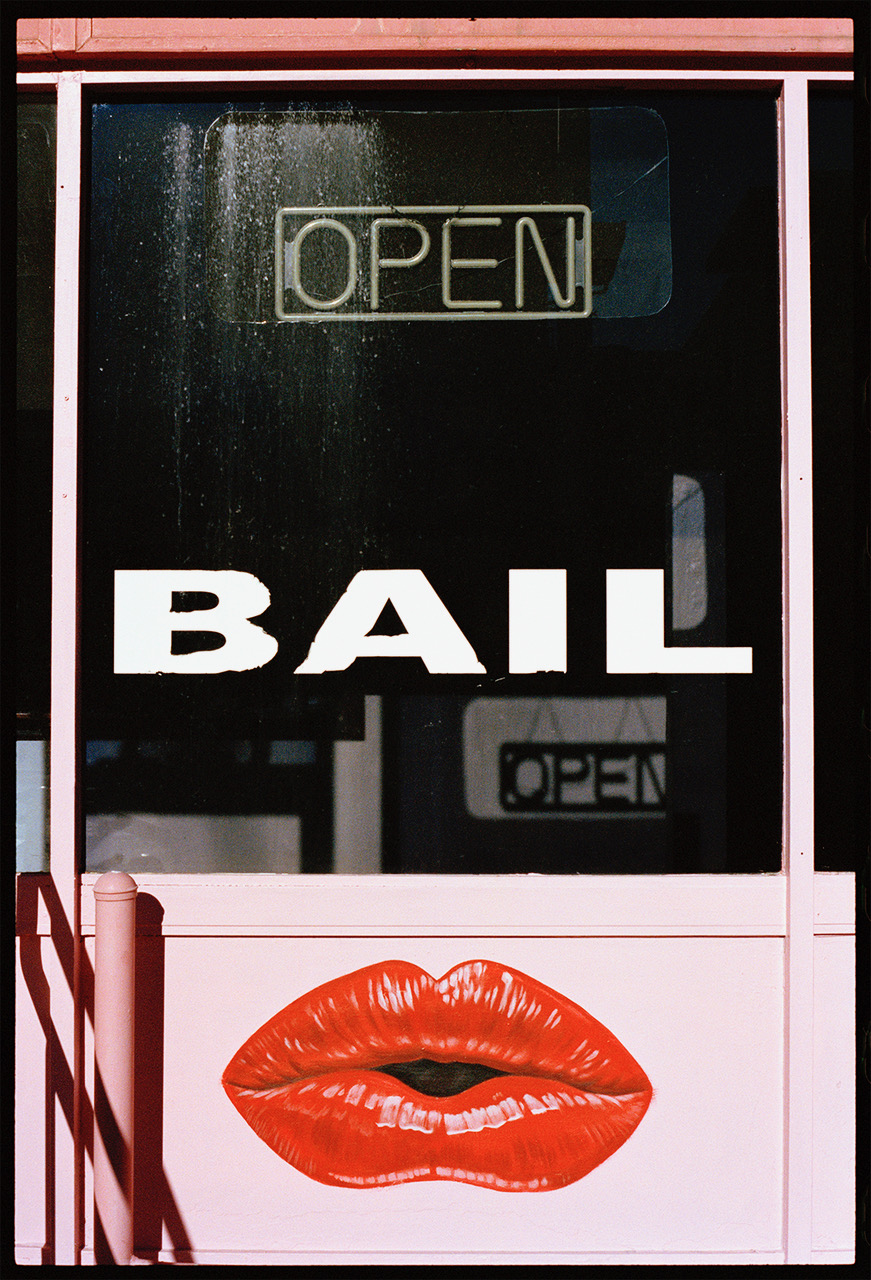
HUNTER BARNES – OFF THE STRIP
‘Few cities are imbued with more legend than Las Vegas. Off the Strip is a photographic study of the Nevada city’s characters by Hunter Barnes, people who have been there for decades and lived through what they would call its “glory days” – casino bosses, showgirls, waitresses and managers. Barnes also captures Las Vegas’ architecture in vivid colour, neon motel signs glowing in the dark and baby pink Cadillacs shining in the bright sunshine. Escapist photography at its very best.’ AnOther Magazine
‘Viva old Vegas at the David Hill Gallery with Hunter Barnes’ stunning collection of photographs of 1960s showgirls and the sights and people who shaped Sin City in its heyday.’ London Evening Standard ES Magazine
‘Barnes’ remarkable portraits are a rare insight into the people and landmarks of the real Las Vegas.’ L’Œil de la Photographie
April 2018
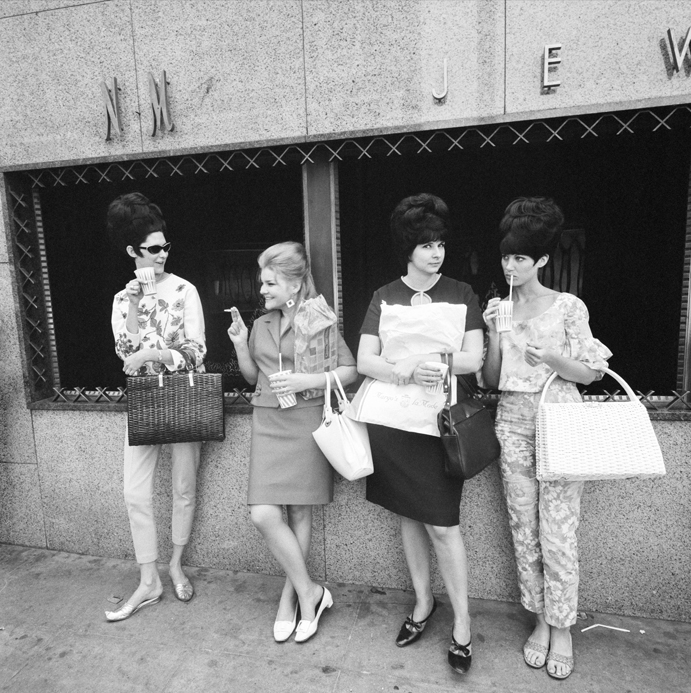
MARIO CARNICELLI – AMERICAN VOYAGE
‘With Mario Carnicelli, the word documentary takes on another dimension, as he engages in a true societal analysis, whether in black and white or in colour, in his native Italy or the United States. He seeks to reveal the essence of man rather than facts or gestures.’ Prix Viviane Esders Laureatte – Mario Carnicelli, first place winner 2022
‘Influenced by the humanist approach of New Deal photographers such as Dorothea Lange, Carnicelli focused his lens not on the skyscrapers but on what was happening at street level.’ The Observer
‘Carnicelli’s photographs span several US cities – Detroit, San Francisco, Buffalo, New York and Chicago – during the 1960s. His images comment on the complexities and contradictions of the American Dream, and how the pursuit of it was underpinned by loneliness and displacement.’ Wallpaper
‘Carnicelli was as fascinated by the country’s diversity, individuality and pursuit of happiness, as he was by the loneliness and rootlessness he observed in its people’ The Guardian
‘A deeply humanist portrait of America’ Framelines
‘Taking in the people, fashion, colours and textures of sixties street life, Carnicelli encapsulates the changing culture of America in every shot. His outside eye brings a voyeuristic aesthetic as he triumphs in capturing the candid moments of day-to-day life.’ Hunger TV
September 2017
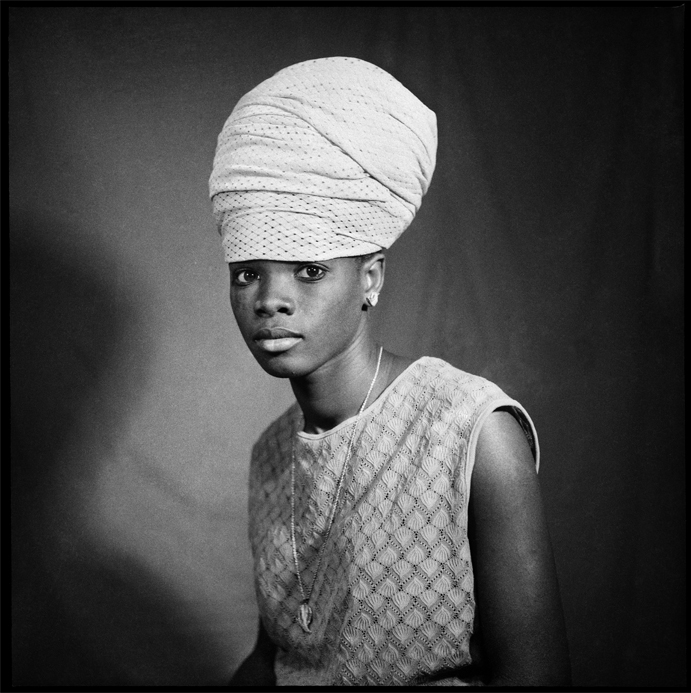
SANLÉ SORY – VOLTA PHOTO 1965-85
‘Sanlé’s work documenting the cultural scene is reminiscent of that by Malick Sidibé and Seydou Keita…. and now it is his turn to be lionized.’ The New York Times
‘The photographs are populated by customers and friends, some dressed up as musical idols, others wearing the fashions of the day. Tradition jostles with modernity, capturing the mood of a rapidly urbanising West Africa’s nation.’ Financial Times
‘Sanlé Sory’s joyful photographs of Burkina Faso in the 1970s capture the youthful energy of a newly independent country’ The Economist
‘Capturing the people of Burkina Faso in the first decades of African independence, Sanlé’s portraits are finally winning international recognition.’ British Journal of Photography
‘Photographing Burkina Faso’s burgeoning pop culture in its first years of independence, Sanlé Sory captured his nation’s musical titans, vibrant nightlife and expressive street style in all its striking glory’. Black + White Photography
‘Sanlé Sory’s potent portraits of West African culture captured Burkina Faso at a pivotal moment of emergence.’ Wallpaper
‘He portrays his subjects with wit and energy, but with a winning fondness, too’ The Telegraph
‘He captured the mélange of traditional and modish styles that characterized the 1960s and 1970s — young women in patterned tops, wiry men in bell bottoms and t-shirts that read “Adieu” or “I’m In” — and the spirit of exhilaration to match, as the country was shrugging off its colonial past.’ i-D
‘The unsung hero who captured West Africa’s rebels and dreamers’ Dazed
June 2017
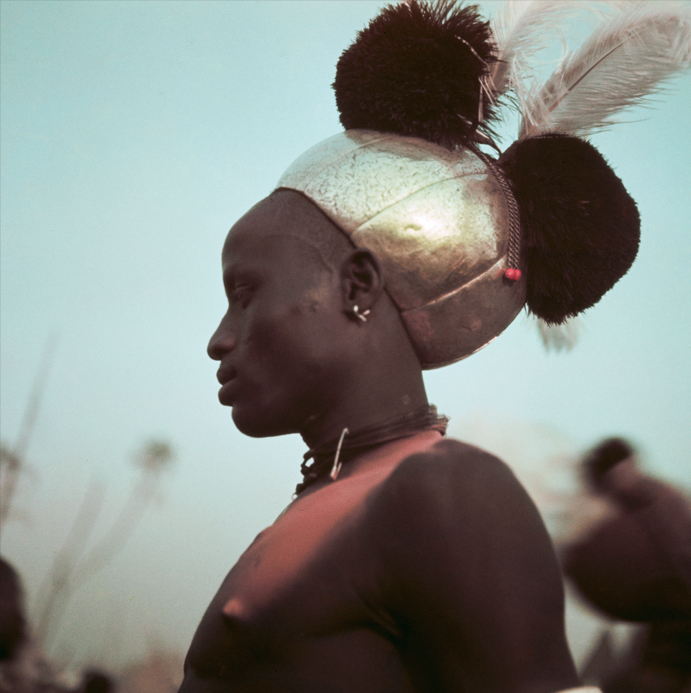
GEORGE RODGER – THE NUBA AND LATUKA, SUDAN, 1948-49
‘Some of the most iconic photographs in recent history’ Black + White Photography
‘It seems appropriate that in Magnum Photos’ seventieth year, the ‘lost’ colour photographs of George should be published, celebrating this seminal work on the Nuba and Latuka peoples.’ Chris Steele-Perkins, Magnum Photos
June 2016
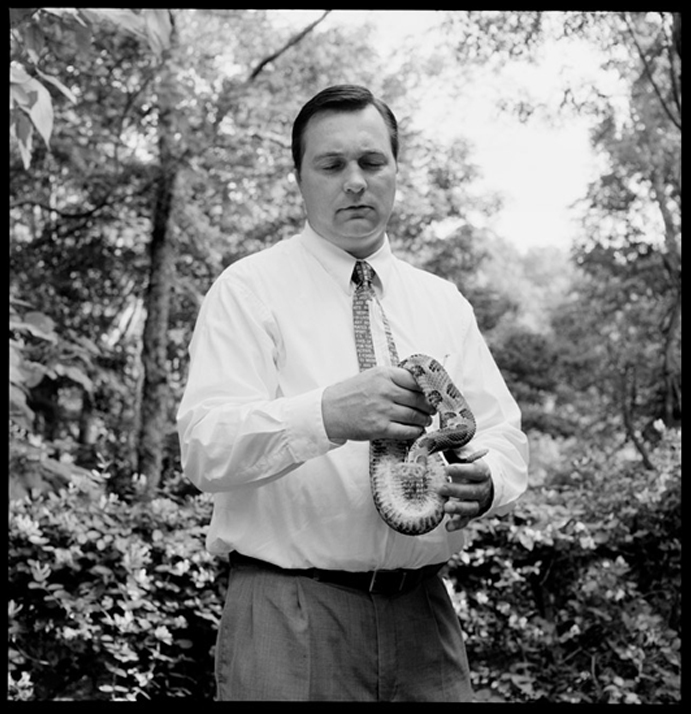
HUNTER BARNES – 15 YEARS, REFLECTIONS OF AN AMERICAN NARRATIVE
‘Barnes does not turn away from the challenges that face the Nez Perce people, but his photographs celebrate the bigger picture—their character and their magic. He captures a complex spirituality, a strong sense of pride, and inklings of hope.’ Air Mail
‘Hunter Barnes is the kind of artist you’d be dealing with if you were to merge Jack Kerouac’s beat poet thirst for the road with the early 20th Century photographer Edward S. Curtis’ obsessive drive to document marginalized communities across the great expanse of the American landscape.’ Paper
‘Hunter Barnes is one of the most significant documentary photographers working in America today.’ L’Œil de la Photographie
‘This is a very special visual account and the journey that Hunter’s photographs take the viewer on, and the people he encounters on the way, will live long in the memory.’ artdaily.org
April 2016
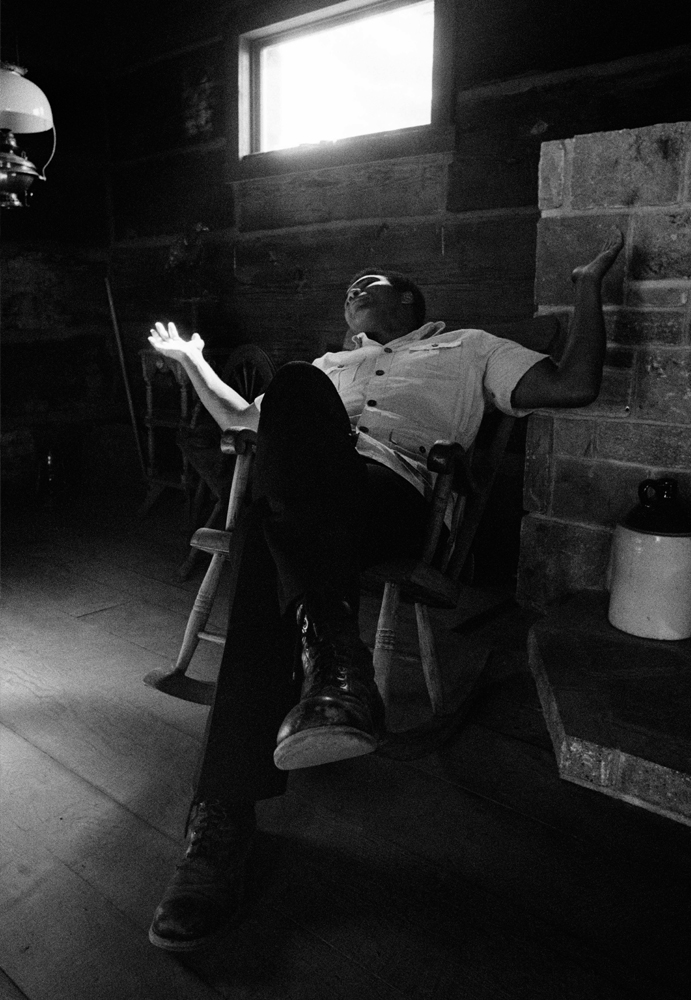
PETER ANGELO SIMON – MUHAMMAD ALI, FIGHTER'S HEAVEN 1974
‘These rare and candid images strip back the celebrity persona to show a thoughtful, focused and determined fighter. Few photographers got as close to the boxer behind the legend.’ British Journal of Photography
‘Simon captures, on the faces of those who met Ali, the dumbstruck awe and joy that he was able to bring forth.’ The New Yorker
’The camp was a special place and somewhere in that mountain air, among the pine trees and the log cabins, Muhammad found peace and sanctuary. He loved that camp, It was the only place he felt he could transform his body and prepare his mind for a fight, except maybe Miami in the original 5th Street Gym.’ Lonnie Ali
‘What Peter did with his camera at Deer Lake in August of 1974 lets us experience Muhammad Ali’s private world in a way not seen before.’ D. A. Pennebaker
December 2015
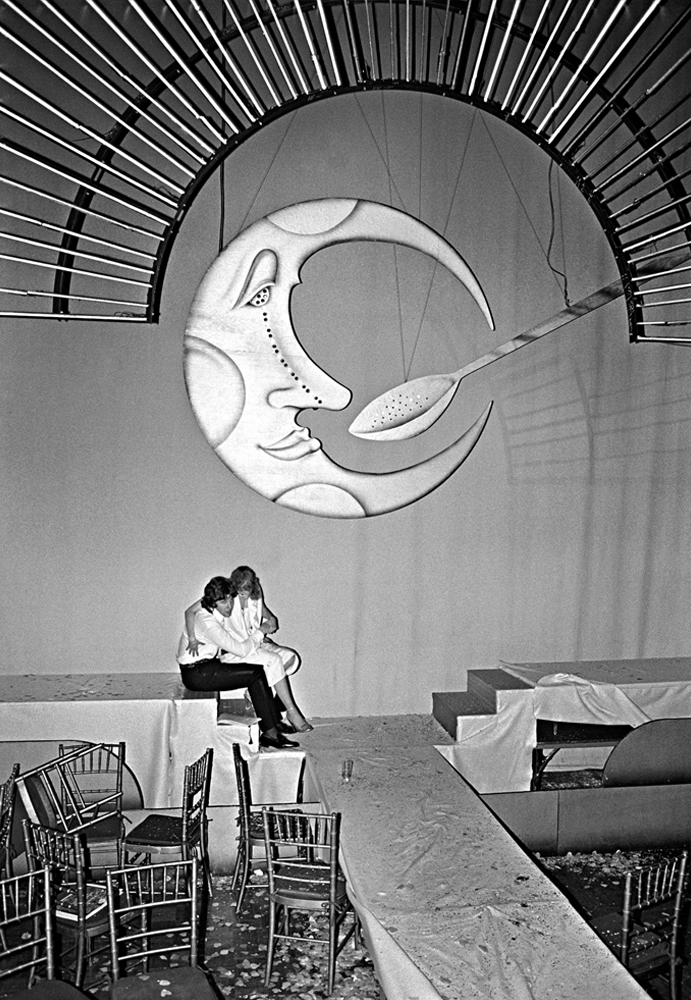
DISCO – THE BILL BERNSTEIN PHOTOGRAPHS
‘Bernstein’s photos from Studio 54 and other beloved night clubs area paean to judgement-free spaces in social and political upheaval.’ The New Yorker
‘The legendary Village Voice photographer captured the best of Manhattan’s nightlife.’ Vogue
‘Bill Bernstein took some of the most memorable pictures of the late 1970s New York club scene in existence, bottling the atmosphere and inherent hedonism.’ AnOther Magazine
‘Bill Bernstein’s striking images of 70s clubland illustrate disco’s glamour and decadence.’ The Guardian
‘Years on, his photos plunge us back into the epicentre of that heady musical epoch.’ The Independent
‘Bill Bernstein captures the ecstasy and inclusivity that defined NY’s nightlife in the ‘70s.’ Huck
‘a collection of uplifting candids and portraits that illustrate disco’s hedonistic and euphoric spirit’ Creative Review
‘From Studio 54 to Paradise Garage, Bernstein was there to document the euphoric late 70s peak of the New York City disco scene’ The Guardian
‘Bernstein’s photography captures the essence of New York’s nightlife’ Daily Mail
October 2015
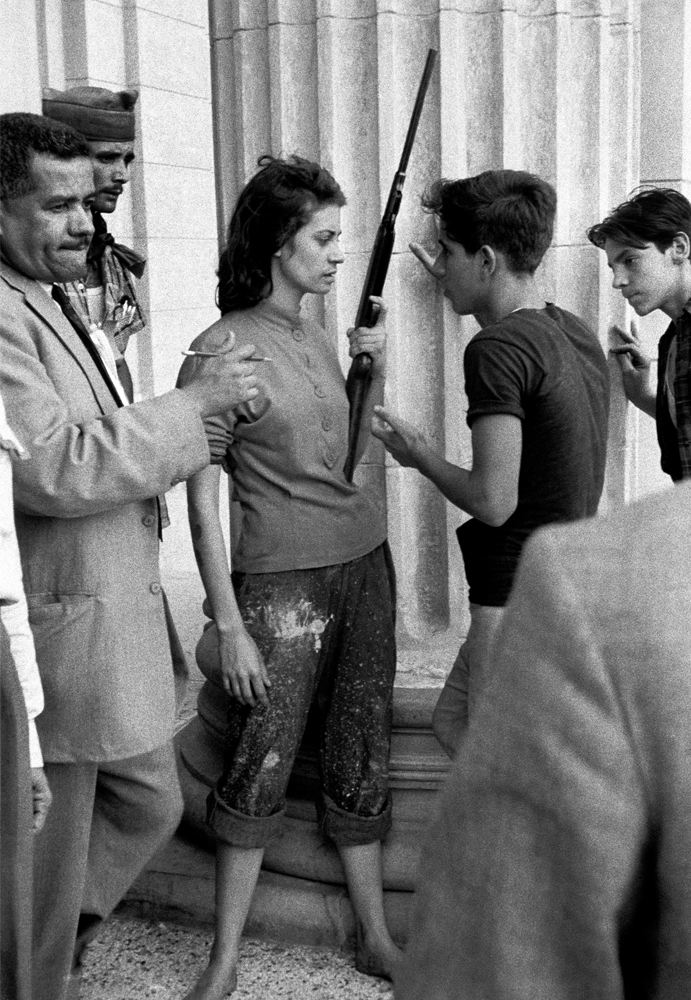
BURT GLINN – CUBA 1959
‘Remarkable documentation by the Magnum photographer.’
Time Out
‘A legendary photojournalist and one of the first American members of Magnum, Burt Glinn is synonymous with the Cuban Revolution. Photographing it as it happened, his pictures embody the jubilation, fervour and chaos of those historical moments.’ Black + White Photography
‘Incredible photographs of the Cuban Revolution as it unfolded.’
Art Rabbit
September 2015
